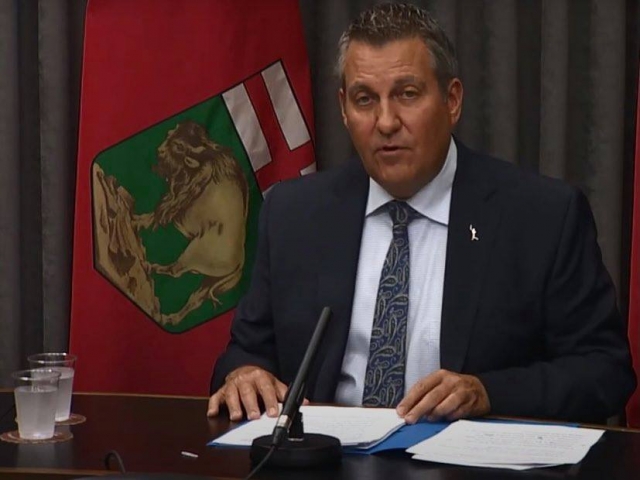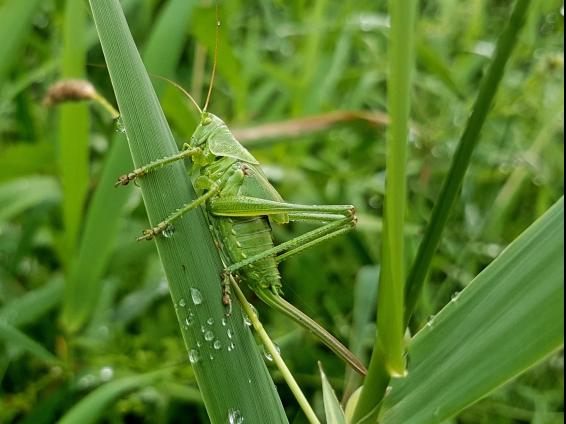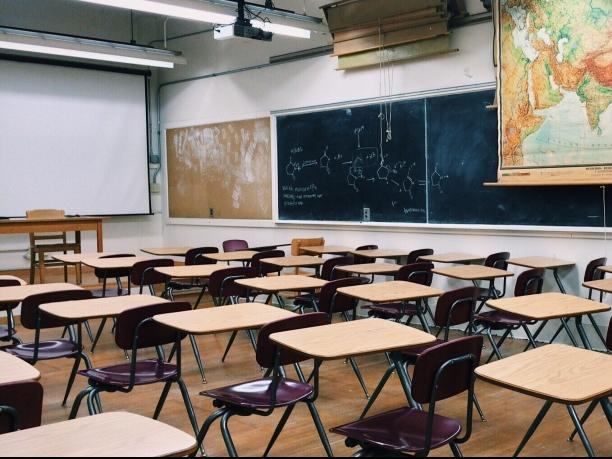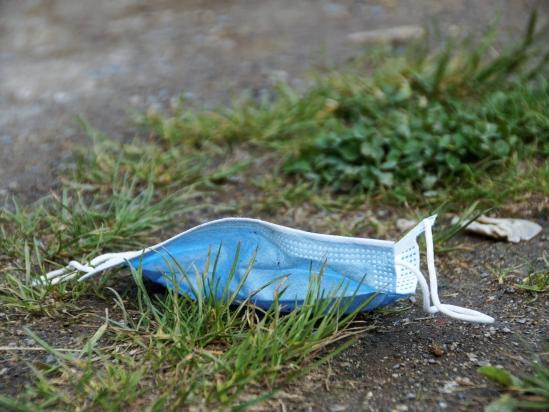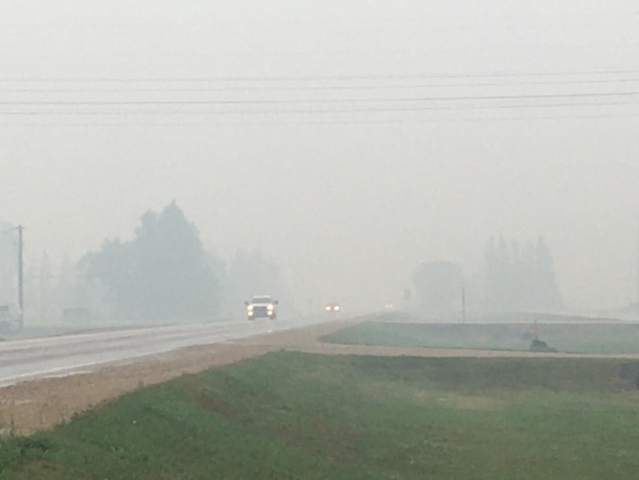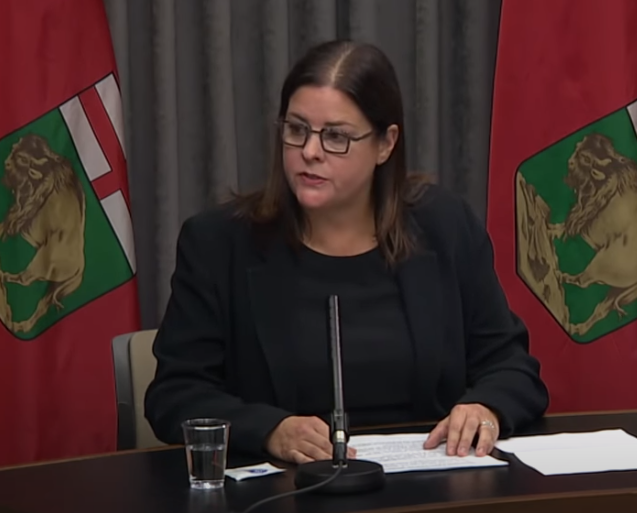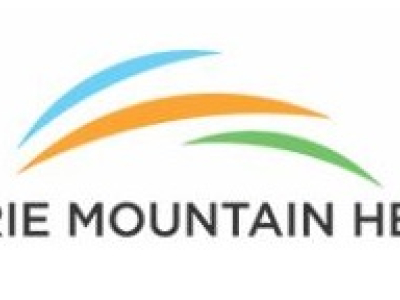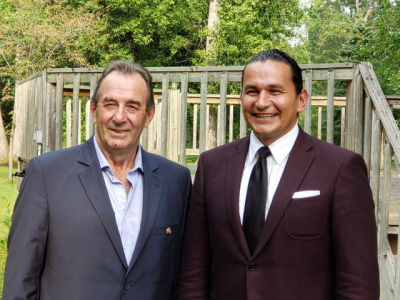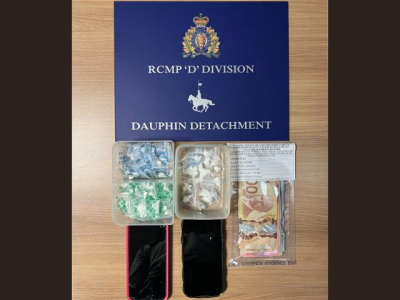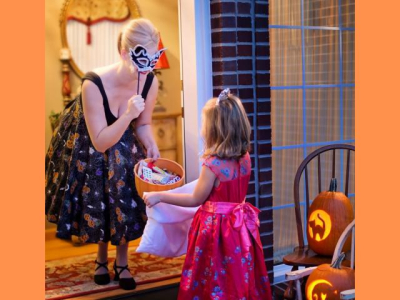 NewsNow
NewsNow
Manitoba Conservation has issued a boil advisory for the Ste. Rose public water system.
Test results of routine water samples taken on August 3rd, 2021, have shown the presence of coliform bacteria in the treated water supply at the Ste. Rose du Lac water system.
As a result, a boil water advisory has been issued to ensure public health protection.
Until further notice, all water used for consumption should be brought to a rolling boil for at least one minute before it is used for:
Drinking and ice-making
Preparing beverages, such as infant formula.
Preparing food, including washing fruits and vegetables.
Brushing teeth
Manitoba Conservation notes that it is unnecessary to boil tap water used for other household purposes like laundry or washing dishes.
Adults and older children that can avoid swallowing the water can wash, bathe or shower. Young children should be sponge bathed. If boiling is not practical, an alternate like bottled water should be used for consumption purposes.
- Details
- Contributed by Noah Fuchs
Education Minister Cliff Cullen and chief provincial public health officer Dr. Brent Roussin held a news conference Thursday afternoon regarding the Safe Return to School Plan for Kindergarten to Grade 12.
Cullen announced that students would return to classrooms on Sept. 7:
“We are pleased to have all students and staff returning to full-time in-class learning while continuing to follow recommended public health fundamentals. We know that students learn best in the classroom, and the return to school plan will help to ensure schools stay open and adjust with additional measures, as needed, to address changes in local community or school situations.”
Students and school staff will be expected to follow the COVID-safe basics, such as self-screening, hand hygiene and staying home when sick. Masks are recommended for all students, staff and visitors but not required.
Notifications of new COVID-19 cases in schools will continue, and the public dashboard will resume in September, said Dr. Brent Roussin.
“I support this reopening school plan. Studies show that children are less likely to transmit COVID-19 at home, in school or in community settings and at lower risk of severe illness from COVID-19. There are significant benefits to their learning and overall well-being from the in-person interaction and extracurricular activities they get at school. The strong determination of Manitobans has helped limit the spread of the virus. This has resulted in a reduction in overall case numbers, community transmission and test positivity rates. The strain on our health care system continues to decline as vaccination rates continue to increase.”
About two-thirds of those aged 12 to 17 have received at least one dose of the COVID-19 vaccine, and about 52 percent have received both doses.
Public health and education officials are planning to ensure young people can catch up on essential immunizations that have been delayed due to the pandemic, such as HPV, hepatitis B, meningococcal disease, and tetanus-diphtheria and pertussis. Details will be shared with parents, students and school communities as soon as possible.
Public health officials are also recommending changes to classroom sizes for child care facilities to increase from 30 to 48 children, plus staff. In addition, physical distancing within a classroom is no longer required.
Funds dedicated to helping and protecting students include:
$40 million for additional staffing, learning and technology, and health and safety.
$6 million for masks and personal protective equipment.
$5 million for the Kindergarten to Grade 8 Remote Learning Support Centre for immunocompromised students and $2 million in contingency funding.
- Details
- Contributed by Noah Fuchs
The province handed out 14 tickets to people and businesses who violated public health orders last week.
Of the tickets, nine $1,296 tickets were handed out to individuals for various public health order violations, while three $298 tickets were given to people who weren’t wearing masks in indoor public places.
Two restaurants also each received a $5,000 ticket for alleged health order violations.
Since April 2020, more than $2.8 million in fines have been issued.
- Details
Growers and producers have faced many difficulties this year, between pests and the extreme weather.
John Gavloski, Entomologist with Manitoba Agriculture and Resource Development says the biggest concern right now is grasshoppers.
“Populations are quite variable. There will be some areas and some fields where they’re really not an economical concern, but then there are other areas where they certainly are.”
Gavloski says grasshoppers have been on the rise in recent years, due to the dry and hot conditions.
“Of the roughly 85 species of grasshoppers in Manitoba, there’s four we consider pests, and those four species can lay a lot of eggs. In a hot year, they’re going to start laying their eggs a little earlier, and if we don’t get some cooler weather and frost at some point, they’ll just keep laying their eggs.”
Gavloski is preparing to do the 2021 grasshopper count this month.
“You can count either the adults or the eggs. Counting the eggs requires sifting soil. It takes a long time and there’s a lot of work involved. The easier approach is to go out in August and do counts of adult grasshoppers around the edges of the field. We usually try to target around 100 to 150 sites in the province. It’s just a matter of doing an estimate of grasshoppers along the field edge.”
The data from the estimations gets mapped so they can make a forecast for the next season.
Gavloski says that flea beetles have also been an issue across the province, and there has been some spider mite activity in soybeans.
- Details
- Contributed by Trillian Reynoldson
Education Minister Cliff Cullen and chief provincial public health officer Dr. Brent Roussin are holding a press conference this afternoon, regarding the Safe Return to School Plan.
Roussin recently said the goal is to have school return to normal as much as possible for students this fall.
In May, Cullen announced $58 million in funding to help schools cope with COVID-19 in the upcoming school year.
The conference is taking place at 2:30 p.m., and CKDM will provide more information as it comes.
- Details
- Contributed by Trillian Reynoldson
Many rural communities and First Nations in Manitoba will be receiving federal funding to be connected to high-speed internet.
Yesterday the federal government announced over $41 million in funding for 11 projects that will improve connections in around 93 communities, including Dauphin Beach, Ebb and Flow First Nation, Clear Lake, Onanole, Sandy Lake, and Sifton.
Currently, many rural Canadians lack access to high-speed internet.
Through the Connect to Innovate program, and the Rapid Response Stream of the Universal Broadband Fund, the Government of Canada is taking action to get Canadians connected to high-speed Internet.
- Details
- Contributed by Trillian Reynoldson
As of Saturday, we will no longer be mandated to wear masks, but it is still recommended that we do.
We asked people in Dauphin how they felt about not having to wear masks anymore.
Some people were happy and excited about it, like Jason and Travis from Dauphin.
“I’m pretty happy about it. I think it’s a little bit of a relief for some people.”
“Me, personally, I’m happy about it.”
Marsha from Winnipegosis is also happy about it.
“I’m actually pretty excited for it. I think it’s about time.”
With some people happy about the mask mandate being lifted, other people are still planning on wearing masks after Saturday, like Hazel and Lorne from Dauphin.
“I’m still going to wear my mask because I feel safer with it.”
“I think they should’ve kept the masks until everyone got their vaccine. I’m going to keep wearing my mask to the store and whatnot.”
On Tuesday, Premier Brian Pallister announced that Manitoba’s mask mandate will be lifted, meaning that wearing masks in indoor public places are now optional and not mandatory.
80% of eligible Manitobans are at least partially vaccinated and 71.6% are fully vaccinated.
- Details
CEO & President of the Lung Association of Manitoba, Neil Johnston, summarizes the risk of inhaling the wildfire smoke.
"Everybody who is exposed to this smoke over time can end up having some long-term consequences down the road. Inhaling the smoke from a wildfire over a short period, once or twice a year, those kinds of things (are okay.), But if it becomes more and more common, the complications start showing up. And those complications are due to the fact that some of the particles generated by the wildfires are really small. They are 2.5 microns (in size) which is really tiny, and they go deep into the lungs, and our bodies can't get rid of them very well."
Johnston carried on to touch on the long-term effects of inhaling these tiny particles.
"They can cause inflammation, and that inflammation can affect the lungs themselves, but they can go on to affect the heart, the circulatory systems and other organ systems over time. So it is something we need to be aware of, and we advise people, not only those at high risk, but everybody should take precautions when air quality deteriorates to avoid the potential complications down the road."
Some of the precautions you can take when air quality is poor are:
- Move to a cleaner air environment.
- Reduce the amount of air that is being brought into the office or home.
- Close all air intakes.
- Use air filters and replace them as per the manufactures instructions.
- Use room air purifiers.
Manitoba's Lung Association says those who face higher health risks during poor air quality include young children, the elderly, pregnant women, and people with heart or lung conditions. These individuals should avoid exposure to this smoke when possible.
- Details
- Contributed by Noah Fuchs
The Manitoba government is investing up to $2.3 million over three years to support an indigenous-led, sexually transmitted and blood-borne infections testing and contact tracing strategy.
Health and Seniors Care Minister Heather Stefanson says this initiative will help with normalizing the testing and treatment of sexually transmitted and blood-borne infections, and enable culturally safe care.
“Other Indigenous-led public health programs in other jurisdictions have seen great success, and we are confident this new initiative will see the same.”
The initiative will be developed by Indigenous health experts and delivered by Ka Ni Kanichihk, an Indigenous community organization with a strong track record in helping Manitoba’s Indigenous communities, through partnerships with other community service organizations, government agencies, funders and other stakeholders.
- Details
- Contributed by Trillian Reynoldson
Because of the dry conditions, many municipalities have fire bans and restrictions.
Starting today until tomorrow, crop residue burning is not authorized except by permits in all municipalities and zones in Manitoba due to unsafe burning conditions and poor air quality.
Until Monday, November 15th crop residue burning is not authorized, except by permit, in the municipalities of Rosser, Headingley, St. Francois Xavier, Cartier, Macdonald, Ritchot, Tache, Springfield, East St. Paul and West St. Paul.
Anyone who wishes to apply for a burn permit can do so by calling 204-745-5646 or 1-800-265-1233.
Anyone requesting a permit for this weekend must do so by 3:30 p.m. on Friday.
Safe burning practices must be followed, and smoke must not obscure any public roadway or create problems for neighboring residents.
- Details
- Contributed by Trillian Reynoldson
The winners of the first round of the “Vax-to-Win” lottery will be announced on Monday, August 16th.
Premier Brian Pallister says those who received their first COVID-19 vaccine dose by August 2nd will be entered to win up to $100,000 for eligible adults. Youth can win a $75 thousand scholarship.
“We’re so close to reaching all of our vaccination milestones, but to reach that Labour Day immunization milestone we set out in our 4-3-2-One plan, we need 25 thousand second dose vaccinations, and I’m confident we can reach that goal any day now.”
As of yesterday, 80 percent of eligible Manitobans had received one dose, and the province expects 75 percent with two doses within the next week.
Those who receive their second dose on or before September 6th will be entered into the second draw.
- Details
- Contributed by Trillian Reynoldson


